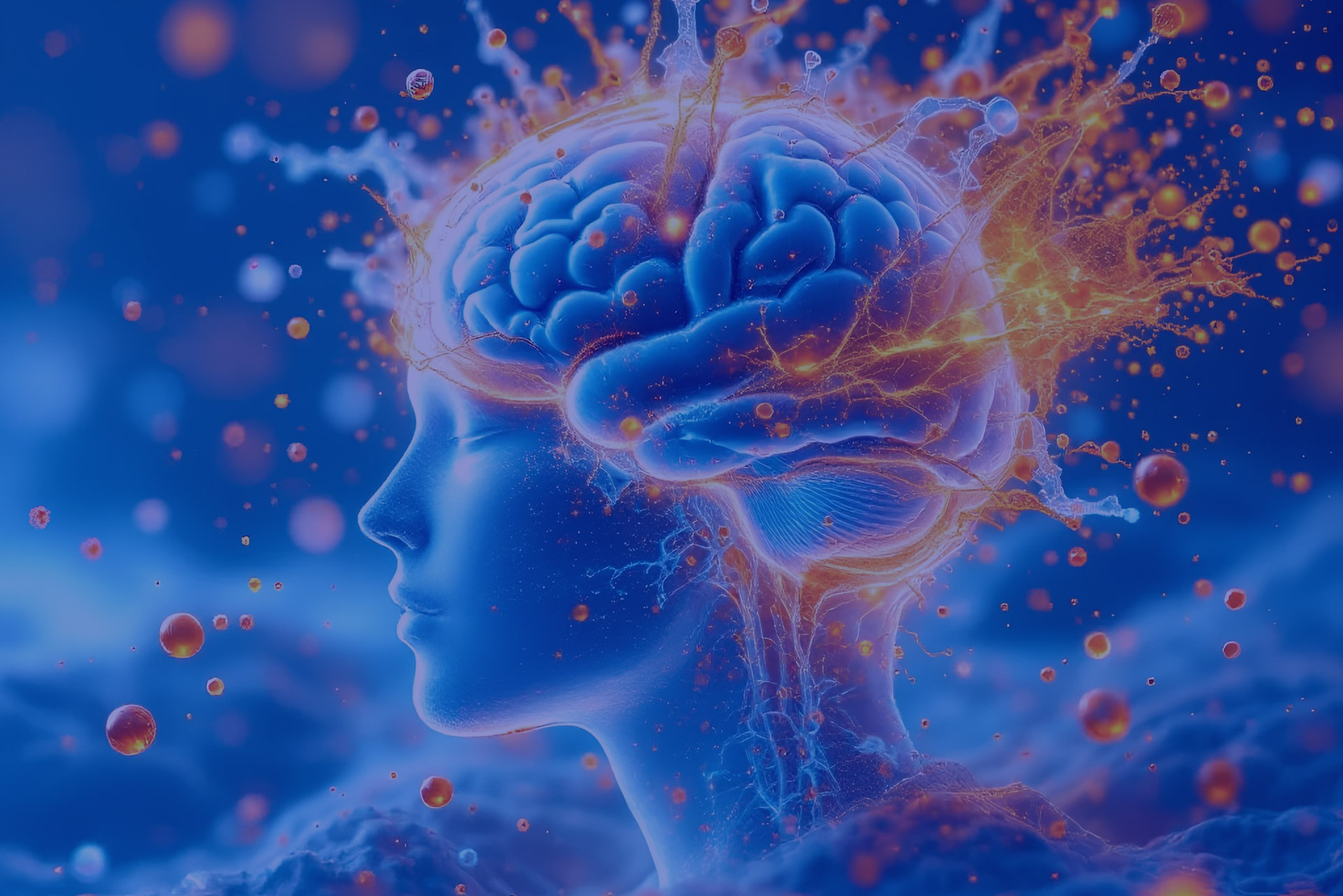Introduction
As women enter their 30s and 40s, many begin to notice subtle changes in their bodies – changes that can stir up a whirlwind of emotions and physical discomfort. These shifts often signal the onset of perimenopause, a natural transition that can bring about hormonal fluctuations, leading to a variety of intense symptoms. Understanding these changes and the options for treatment with bioidentical hormones vs HRT (conventional hormone replacement therapy) is the first step toward reclaiming balance and well-being!
Common symptoms of perimenopause and menopause
During this time, you might find yourself experiencing hot flashes that feel like a personal summer in the middle of winter, night sweats, mood swings that make you feel like you’re on an emotional rollercoaster, and sleep disturbances that leave you counting sheep instead of enjoying restful nights. You may also notice weight gain, changes in libido, and even memory lapses that make you wonder if you’re misplacing more than just your keys.
These symptoms are not just inconvenient; they can significantly impact your quality of life. As a functional medicine practitioner trained in both Western and Chinese medicine, I believe it’s essential to address these hormonal changes holistically.
Bioidentical hormones vs HRT
Achieving hormonal balance is important for your overall health and managing menopause symptoms. It can influence everything from your energy levels and mood to your skin health and bone density. In this article, we’ll explore the options available to manage these changes effectively, specifically focusing on the benefits of bioidentical hormones vs HRT (conventional hormone replacement therapy). By understanding these options, you can make informed decisions and regain control over your body during this natural transition.
Understanding Hormone Replacement Therapy (HRT)

Hormone Replacement Therapy, commonly known as HRT, is a treatment designed to alleviate the symptoms associated with hormonal imbalances during perimenopause and menopause. As estrogen and progesterone levels fluctuate and eventually decline, many women seek relief from the discomforts that accompany these changes. HRT aims to replenish these hormones, helping to restore balance and improve quality of life.
Common synthetic hormones used in conventional HRT
Conventional HRT typically involves the use of synthetic hormones, which are manufactured to mimic the effects of natural hormones in the body. The most widely used synthetic hormone is conjugated equine estrogens, often marketed under the brand name Premarin, sourced from the urine of pregnant horses. Alongside estrogens, synthetic progestins (such as medroxyprogesterone acetate) are frequently prescribed to protect the uterine lining and reduce the risk of endometrial cancer.
While conventional HRT has been a go-to treatment for years, it’s important to understand that these synthetic options may not be the best fit for everyone. They can come with a range of side effects and potential risks, which has led to increased scrutiny and debate around their use.
Historical perspective on HRT
In 2002, the Women’s Health Initiative (WHI)—a landmark study—drew significant attention to the risks associated with conventional HRT. Initially, findings linked synthetic HRT to increased risks of cardiovascular disease, breast cancer, and other health issues, sending shockwaves through the medical community and causing many women to hesitate in seeking hormone therapy.
However, recent research has challenged some of these earlier conclusions. As we better understand the complexities of hormone replacement therapy, it’s clear that not all hormones are created equal, and the conversation is evolving. It’s important to differentiate between synthetic hormones and bioidentical hormones – an alternative that holds promise for many women seeking relief from menopausal symptoms.
The Case Against Conventional HRT
Risks associated with synthetic hormones
While conventional hormone replacement therapy has been a widely accepted treatment option, its important to understand the potential risks associated with synthetic hormones. Studies have shown that synthetic estrogens and progestins can increase the likelihood of serious health issues, including:
Cardiovascular risks: Some women using synthetic HRT have experienced an increased risk of blood clots, stroke, and heart disease. The synthetic formulations can affect the body’s normal clotting mechanisms, leading to potential complications.
Breast cancer concerns: Research has indicated a link between the use of synthetic progestins and an elevated risk of breast cancer. This risk appears to be particularly pronounced in women who use combined estrogen and progestin therapy for extended periods.
Other health implications: Beyond cardiovascular issues and cancer risk, synthetic hormones may contribute to other side effects, such as headaches, mood changes, bloating, and gastrointestinal disturbances. These side effects can be significant enough to deter women from continuing treatment or seeking help altogether.
Misinterpretation of research findings
The initial findings from the Women’s Health Initiative (WHI) study created a climate of fear around hormone replacement therapy. While it is crucial to understand the potential risks, it’s equally important to recognize that the research primarily focused on synthetic hormones, not bioidentical alternatives.
Over the years, more nuanced interpretations of the WHI findings have emerged, indicating that many of the adverse effects were likely tied to the specific types of synthetic hormones used rather than hormone therapy as a whole. Moreover, the study did not adequately consider individual risk factors, such as age, family history, and overall health status, which can significantly influence how a woman responds to HRT.
As we deepen our understanding of hormonal therapies, it becomes clear that the conversation needs to shift toward more personalized approaches. Recognizing that not all women will experience the same risks or benefits from conventional HRT is fundamental in guiding treatment decisions.
Bioidentical Hormones vs HRT: A Safer Alternative
Definition and benefits of bioidentical hormones
Bioidentical hormones are compounds that are chemically identical to the hormones naturally produced by the human body. Unlike synthetic hormones, which can have altered structures, bioidenticals are derived from natural sources, typically plant-based ingredients such as soy and yams. This structural similarity allows bioidentical hormones to fit perfectly into the body’s hormone receptors, promoting more effective and natural responses.
The benefits of bioidentical hormones include:
Fewer side effects: Many women report fewer adverse reactions and side effects with bioidentical hormones compared to their synthetic counterparts.
Customization: Bioidentical hormone therapy can be tailored to meet individual needs. Practitioners can adjust dosages and delivery methods to align with each woman’s unique hormonal profile, symptoms, and health goals.
Improved symptom relief: With their natural compatibility, bioidentical hormones often provide more effective relief from menopausal symptoms, enhancing overall quality of life.
Research supporting bioidentical hormone therapy (BHRT)
A growing body of research supports the use of bioidentical hormones as a safer and more effective alternative to conventional HRT. Studies, such as the Million Women Study, have shown that women using estradiol and progesterone (both bioidentical) experience significant symptom relief without the heightened risks associated with synthetic hormones.
Furthermore, ongoing research is helping to elucidate the long-term safety and efficacy of bioidentical hormone therapy. As more practitioners adopt these approaches and contribute to the existing literature, we can expect to see a clearer picture of the benefits of bioidentical hormones vs HRT and how bioidentical hormones can help women navigate the menopausal transition.
Personalized approach to BHRT
One of the most compelling advantages of bioidentical hormone therapy is the potential for a personalized approach. In functional medicine, we emphasize treating the individual rather than merely addressing symptoms. This means:
Comprehensive testing: Before initiating hormone therapy, it’s essential to conduct thorough hormone testing to identify imbalances and determine the appropriate treatment plan.
Tailored treatment plans: Based on test results, practitioners can design a customized hormone replacement protocol that aligns with each woman’s specific needs. This may include adjusting dosages, selecting preferred delivery methods (such as creams, patches, or pellets), and incorporating lifestyle changes to enhance overall health.
Ongoing monitoring: Regular follow-ups and re-testing can help ensure that treatment remains effective and safe. This ongoing dialogue between practitioner and patient fosters a supportive environment where women can feel empowered to discuss their experiences and make informed decisions about their health.
In summary, bioidentical hormones offer a promising alternative to conventional HRT, providing women with a more natural and individualized approach to managing menopause symptoms.
Hormone Testing: Why It Matters
Importance of accurate hormone testing
Accurate hormone testing is a cornerstone of effective hormone therapy. Understanding your hormonal profile not only helps identify imbalances but also guides the selection of an appropriate treatment plan. With the right data in hand, healthcare practitioners can tailor interventions to address specific symptoms and health concerns.
Traditional testing methods, such as blood serum tests, have long been the standard. While they provide valuable baseline information, they may not give a complete picture of how hormones are functioning within the body. This limitation is particularly relevant when considering that hormones are often bound to proteins in the blood and may not be available for cellular use.
Testing methods: serum, saliva, and urine (DUTCH test)
Serum Testing:
Serum tests measure total hormone levels in the blood but often fail to capture the free, bioavailable hormones that actively engage with tissues. Additionally, reference ranges can overlap significantly, making it challenging to determine what is “normal” for each individual.
Saliva Testing:
Salivary hormone testing has gained popularity because it measures bioavailable hormones—the fraction that is free and active in the body. However, saliva tests can also present challenges, such as low hormone concentrations and overlapping reference ranges.
DUTCH Test (Dried Urine Test for Comprehensive Hormones):
The DUTCH test represents a significant advancement in hormone testing. This method analyzes dried urine samples collected throughout the day, providing a comprehensive overview of hormone levels and their metabolites. It captures the hormone activity over a 24-hour period, allowing for insights into how hormones are metabolized and utilized by the body.
The DUTCH test can measure various hormones, including estrogen, progesterone, testosterone, and cortisol, along with their metabolites. This detailed analysis enables practitioners to understand not just how much hormone is present but also how it behaves within the body.
Understanding hormone levels and their impact on health
Hormonal imbalances can manifest in various ways, influencing everything from mood and energy levels to bone density and cardiovascular health. By utilizing comprehensive hormone testing, women can gain a clearer understanding of their unique hormonal landscape.
For example:
Estrogen levels: Low estrogen can lead to symptoms like hot flashes and night sweats, while excessively high levels may contribute to weight gain and increased cancer risk.
Progesterone levels: Progesterone plays a vital role in regulating mood and sleep; imbalances can lead to anxiety or insomnia.
Cortisol levels: Chronic stress can elevate cortisol levels, impacting energy, weight, and overall well-being.
Understanding these levels empowers you to make informed decisions about your health and treatment options. Armed with knowledge about your hormonal status, you can work collaboratively with your healthcare providers to develop personalized strategies for achieving balance and wellness during this transformative phase of life.
Practical Considerations for Women
Are bioidentical hormones right for you?
If you’re experiencing symptoms of hormonal imbalance, you may be wondering whether bioidentical hormone therapy (BHRT) is the right path for you. Here are some key considerations to help guide your decision:
Consultation with a healthcare professional: The first step is to have an open and honest conversation with a qualified healthcare provider who understands both functional medicine and hormone therapy. Discuss your symptoms, medical history, and any concerns you have about hormone replacement options.
Comprehensive hormone testing: Request comprehensive hormone testing to assess your current hormonal profile. This information is crucial in determining if you have imbalances that could benefit from bioidentical hormones.
Evaluate your symptoms and health goals: Reflect on the specific symptoms you’re experiencing and how they impact your daily life. Consider your health goals—whether it’s reducing hot flashes, improving sleep quality, or enhancing mood—and share these with your practitioner to tailor your treatment plan effectively.
Consider lifestyle factors: Assess your overall lifestyle, including diet, exercise, and stress management. These factors play a significant role in hormone balance and can influence how effective hormone therapy will be.
Lifestyle factors that support hormonal health
In addition to considering bioidentical hormones, adopting a holistic approach to health can significantly enhance your well-being during the menopausal transition. Here are some lifestyle factors to consider:
Nutrition: A balanced diet rich in whole foods, healthy fats, lean proteins, and plenty of fruits and vegetables can support hormonal balance. Focus on foods that are high in phytoestrogens, such as legumes, flaxseeds, and whole grains, which may help manage symptoms.
Regular exercise: Engaging in regular physical activity can help regulate hormone levels, improve mood, and promote overall health. Aim for a mix of cardiovascular workouts, strength training, and flexibility exercises like yoga or Pilates.
Stress management: Chronic stress can wreak havoc on your hormonal balance. Incorporate stress-reduction techniques into your daily routine, such as mindfulness meditation, deep breathing exercises, or spending time in nature.
Quality sleep: Prioritize good sleep hygiene by establishing a consistent sleep schedule, creating a comfortable sleep environment, and limiting screen time before bed. Quality sleep is essential for hormone production and overall health.
Herbal support: Some women find relief from menopausal symptoms through herbal supplements like black cohosh, red clover, or evening primrose oil. Always consult with a healthcare provider before starting any new supplements to ensure they’re appropriate for your individual needs.
By combining bioidentical hormone therapy with these lifestyle strategies, you can create a comprehensive approach to managing menopausal symptoms and achieving optimal health during this transformative time.
Conclusion
As you navigate the transition through perimenopause and menopause, understanding your hormonal health is key to maintaining your quality of life. While conventional HRT has been a widely used treatment option, the associated risks of synthetic hormones have prompted many women to seek alternatives. Bioidentical hormones offer a promising solution, providing a more natural and personalized approach to hormone replacement therapy.
By choosing bioidentical hormones, you may experience fewer side effects and improved symptom relief tailored to your unique hormonal profile. Coupled with comprehensive hormone testing and supportive lifestyle changes, bioidentical hormone therapy can empower you to reclaim control over your health during this important phase of life.
Remember, you don’t have to navigate this journey alone. With the right information and support from qualified healthcare professionals, you can make informed decisions that align with your health goals. Embrace this opportunity for renewal and well-being!
Ready to get started? Schedule your Biodentical Hormone Package with Dr. Josse.
California Functional Medicine
Take Control of Your Hormonal Health
If you’re experiencing symptoms of hormone imbalance, schedule a telemedicine consultation with Dr Josse. This includes analysis of the Dutch hormone lab test.
Related Posts
Understanding Perimenopause and Menopause: Symptoms, Stages and Treatments
Natural Hormone Replacement for Menopausal Women
Find Balance and Revitalize Your Energy: Holistic Solutions to Adrenal Burnout
Unlock the Power of Hormones for Optimal Health
Sleep Away that Annoying Brain Fog
Medical Disclaimer: The information provided in this post is for educational and informational purposes only and is not intended as medical advice. Always consult with a qualified healthcare professional before making any changes to your health regimen or treatment plan.

Dr Josse Ford
Josse Ford is the Founder and Director of the Alchemy Radiant Health clinic in Encinitas, California. She specializes in the integration of Chinese medicine and functional medicine to treat the whole human holistically and to focus on the root cause of illness




